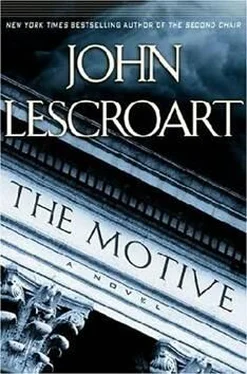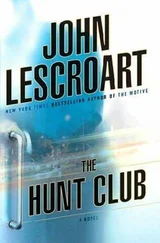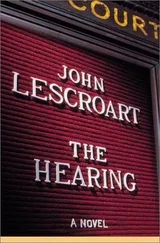Never mind the fog that rolled in over the city for six months out of the year off the Pacific. This, he thought, was the real deal. Every year, he knew, it was responsible for multivehicle wrecks and double-digit fatalities from Redding to Bakersfield, Fairfield to Auburn. Visibility was under a hundred yards, and Glitsky got into the slow lane and decreased his speed to thirty-five, which still felt too fast. But on his left, cars continued to fly by at twice his speed, each on the tail of the vehicle in front of it. Three times people in the slow lane had come up on him hell-bent for leather from nowhere out of the whiteness, disappearing back into it as they swerved to avoid him, honking all the way, flipping him off.
Idiots.
Glitsky wasn't in a hurry and even ifhe was, this wasn't the time or the place. He'd get where he was going when he got there, and that would be soon enough.
The reason for his reluctance was that he wasn't completely certain of the wisdom of his intended actions, and the more time he took before they became irrevocable, the more comfortable he'd remain. He might even give himself enough time to change his plan entirely. But he didn't think so.
On the D'Amiens matter, and the Hanover murder- they were one and the same-he'd decided to stay on in the role of prime mover in whatever events unfolded. The smart move, the professional approach, he knew, would take him out of the loop. He should leave it to the local jurisdiction in the valley now, or to the FBI. Each had an equally strong claim to supervise and carry out the apprehension of Missy D'Amiens.
But almost a year ago Kathy West had asked him to take a watchdog role in the case. He'd been unable to prevent Cuneo from end-running around him, getting an indictment on a woman who was almost undoubtedly innocent. Then the trial-with all of its tabloid stupidity, vulgarity and waste-had led to the renewed currency of the conspiracy theory. Cranks came out of the woodwork and insisted on involving him, Hardy and his client, the mayor, possibly even Chief Batiste and District Attorney Clarence Jackman as players in every problem plaguing the city, from potholes to a rise in the rate of auto theft. And for every one of his good "coconspirators," the charges and innuendoes had been, and in some cases remained, a huge burden-always personally, always politically and sometimes in business terms as well.
But for Glitsky and Hardy, specifically, the charge held an even greater threat. For they both had conspired. Yes, there had been defensible reasons, even compelling ones. But they were conspirators, and while the word was bruited about, they were both in constant, if not to say imminent, danger of being discovered. Even at this remove in time.
And all of it, Glitsky believed, on some level, was his fault. He'd been intimidated by Cuneo, who'd unwittingly played on Glitsky's own deepest fear that someone would discover his role in the shoot-out that had killed a police lieutenant. He'd been outmaneuvered by both the inspector and Rosen; then during his investigation while the trial went on he'd been plain outthought by his best friend. At every turn of this case, at every opportunity to make a difference, Glitsky had failed.
A murderer had killed in the jurisdiction for which he held the ultimate responsibility. And that person was still at large.
After a lifetime of service, Glitsky was finally in a position of real authority as the Deputy Chief of Inspectors. But the entire Hanover affair had destroyed much of his own self-esteem. Far more importantly, he knew that it had sullied his reputation among the Police Department's rank and file, and perhaps also at higher levels. He felt it every day in many ways large and small-a silence when he entered a room, a failure to meet his eyes, invitations for anniversaries and retirements that somehow never got delivered to him.
He was afraid now that his ascension to upper management had turned him into what he swore he'd never become-a functionary, a bureaucrat, Peter-principled out at his position. If he didn't get back the respect of his people-from below and from above-his tenure at the top would remain in a hollow holding pattern. He would achieve nothing great-neither revolutionary change for the better nor even simple efficiency. His earlier promise would forever be perceived as a chimera; his promotion a function of the conspiracy, nepotism and cronyism. His future only a slow slide into retirement, when he would become a forgotten and pitiful full-pensioner, a father of grandfather age, unable to keep up with his young children, or even his wife.
The fog thinned somewhat and he punched it up to fifty, passing Vacaville now-enormous malls and outlet stores lining the freeway for miles on both sides. Housing developments all on top of each other. He didn't get out here to the valley very often, but the growth seemed all out of proportion somehow. When his first set of kids had been younger, he'd driven this road many times on the way up to ski the Sierra, and it had all been farmland back then, really not too long ago. Fifteen, twenty years? And all of it gone now? Isn't this where California was supposed to grow its crops? What were they going to use for land when the rest of it was all covered up and built over?
Keeping his mind from confronting the real issue. Missy D'Amiens.
The first glimpse. The Tuesday after the dismissal. Hardy picks him up at the Hall.
Glitsky putting on his seat belt, Hardy greeting him. "You said we're going somewhere?"
"We are. Glide Memorial. I wouldn't have bothered you except it's Hanover and you might have questions of your own."
"I'm all over it. You gotta love a field trip." "You will."
The soup-kitchen dinner was over by 5:30 most nights, but some people stay around making sandwiches to give out for the next day. Glitsky stands at the door a minute until an older gray-haired black man looks up, puts down his knife, wipes his hands and comes over.
"Lieutenant Glitsky?" Using the civil service rank Glitsky had given him. He sticks out his hand. "Jesse Stuart."
"Rev. Stuart, thanks for meeting with me. This is Dis-mas Hardy. He's interested because he defended the woman charged with killing Missy."
Rev. Stuart doesn't much care-his life is feeding starving homeless people. White men in suits don't figure much in the picture. But he's polite. "So what can I do for you?"
"I'd like to go over a little of what we talked about earlier today. About Missy."
"Sure. I looked it up in the meanwhile, and it was like I said. She started coming in to help out about four years ago now. She was a regular, couple of nights a week, for most of a year, then slowed down. Eventually stopped altogether. Some do."
"And Dorris? No last name?"
The minister smiles. "None I ever knew. She was just Dorris."
"I'm sorry,"Hardy says, "but who's she?" "A regular here 'til last year."
"Last May, right?" Glitsky says, throwing Hardy apregnant look.
"Right. I remember because she came in on my birthday and brought me a flower. So Dorris stopped on May tenth. Didn't never come again."
"Did you report her missing?" Hardy asks.
Stuart doesn't try to show that he thinks this is a dumb question, but a hint of it leaks out. "No, sir. We try to feed as many as we can, but we don't keep tabs on 'em."
"But you didn't think it a little strange that she just stopped?"
"No. Happens all the time. People come and go." Glitsky steps in. "Did you know anything about her? Where she lived? Who with?"
"She didn't live anywhere, or she lived anywhere. Say it any way you want. She usually came in alone, though. Sat by herself if she could. But didn't make nothin' out of it. She was friendly enough to me, and a good talker if you got her going. Actually pretty educated. Did some college one time."
Читать дальше












